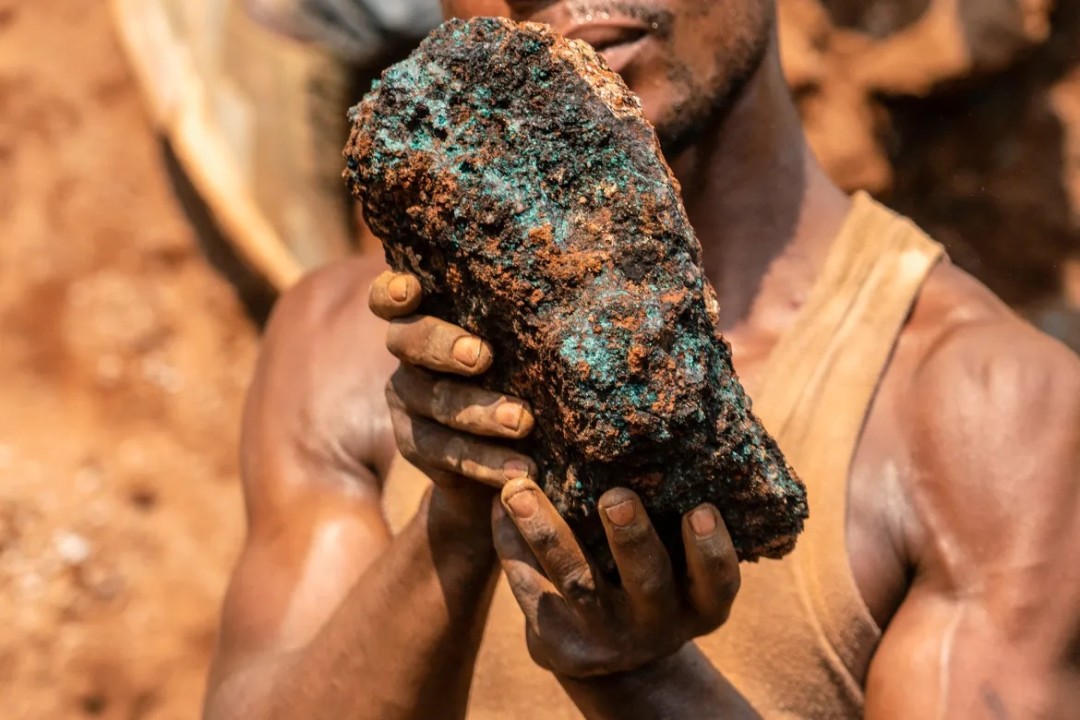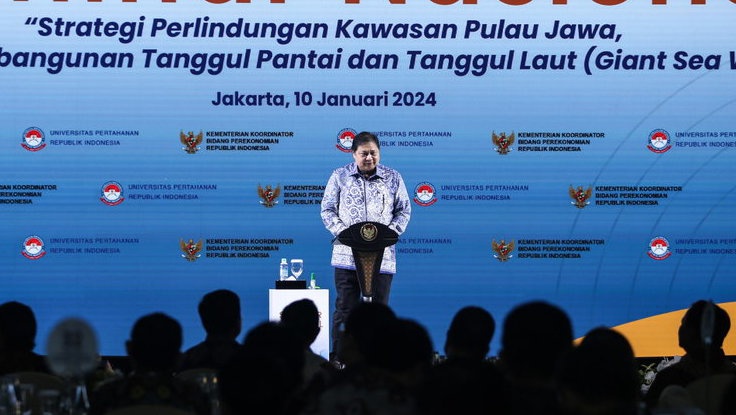Understanding The Impact: Congo's Cobalt Export Ban And The Anticipated Quota

Table of Contents
The Rationale Behind Congo's Potential Cobalt Export Ban and Quota System
The DRC government's motivations for considering a cobalt export ban or implementing a quota system are multifaceted. The primary goal is to capture greater value from its abundant cobalt resources, moving beyond simply exporting raw materials. This initiative is driven by a desire for economic diversification and improved revenue generation for the country.
- Desire for greater value addition within the DRC: Processing cobalt domestically creates more high-skilled jobs and increases the country's share of the profits generated from this valuable mineral. This involves investing in refining and processing facilities within the DRC.
- Concerns over environmental damage caused by unregulated mining practices: Artisanal mining, while providing livelihoods for many, often leads to significant environmental degradation and human rights abuses. A quota system could help regulate these practices and enforce environmental standards.
- Efforts to secure fairer prices for Congolese cobalt resources: The DRC aims to negotiate better terms with international buyers, ensuring that the country receives a fairer share of the profits derived from its cobalt exports.
- Potential for job creation through local processing facilities: Establishing processing plants within the DRC will significantly boost employment opportunities and stimulate economic growth in the region.
Economic Impacts of a Cobalt Export Ban or Quota
A Congo's cobalt export ban or a strict quota system would have significant economic repercussions globally. The most immediate impact would be felt in global supply chains reliant on Congolese cobalt.
- Disruptions to EV battery production timelines and potential delays in vehicle launches: A reduction in cobalt supply would inevitably lead to production bottlenecks for battery manufacturers, potentially delaying the launch of new electric vehicles and impacting the overall growth of the EV market.
- Increased costs for battery manufacturers, leading to higher prices for EVs: Reduced supply typically translates to higher prices. This cost increase would likely be passed on to consumers, making EVs more expensive and potentially hindering their mass adoption.
- Potential for alternative cobalt sources to gain prominence (e.g., Australia, Canada): The disruption could accelerate the development of alternative cobalt sources and encourage diversification of supply chains, potentially altering the global cobalt market landscape.
- Economic repercussions for countries heavily reliant on Congolese cobalt imports: Nations heavily dependent on Congolese cobalt imports would face economic challenges, potentially triggering trade disputes and requiring them to seek alternative suppliers.
Geopolitical Implications of Congo's Cobalt Policies
Congo's cobalt policies will inevitably have significant geopolitical consequences. The control of this critical mineral is strategically important for many nations.
- Potential for increased competition between nations for cobalt resources: A tighter supply of Congolese cobalt would likely increase competition between countries vying for access to this vital resource, potentially leading to strategic alliances and diplomatic maneuvering.
- Shifting dynamics in global power balances related to critical mineral control: Control over critical minerals like cobalt is increasingly seen as a key element of national power and economic security. Congo's policies will reshape this dynamic.
- The role of the EU and other international bodies in shaping cobalt trade policies: International organizations will play a crucial role in promoting sustainable and ethical cobalt mining practices, and in mediating potential disputes.
- Potential for trade disputes and diplomatic tensions related to cobalt access: The scarcity of cobalt could lead to heightened tensions and potential trade disputes between countries seeking to secure their supply.
The Future of Cobalt Mining and Trade in the DRC
The long-term sustainability of cobalt mining in the DRC is paramount. Moving forward, a focus on responsible sourcing and ethical practices is essential.
- The importance of investing in environmentally friendly mining techniques: Sustainable mining practices that minimize environmental damage are crucial for the long-term viability of the industry.
- The need for greater transparency and traceability in the cobalt supply chain: This will help to ensure that cobalt is sourced ethically and that human rights are respected throughout the supply chain.
- Potential for technological advancements to improve efficiency and reduce environmental impact: Technological innovation can play a vital role in improving mining efficiency and reducing the environmental footprint of cobalt extraction.
- The importance of collaboration between governments, industry, and NGOs to foster sustainable cobalt mining: Collaborative efforts are necessary to ensure the responsible and sustainable development of the cobalt mining sector in the DRC.
Conclusion
The potential Congo's cobalt export ban and the anticipated quota system represent a significant turning point for the global cobalt market. The economic, geopolitical, and environmental ramifications are substantial, highlighting the significance of Congo's cobalt production on the global stage. Understanding the implications of this policy shift is critical for businesses, policymakers, and consumers alike. Further research and analysis are crucial to fully understanding the long-term effects. Stay informed on developments surrounding Congo's cobalt policies to navigate this evolving landscape effectively and sustainably. Understanding the implications of Congo's cobalt export ban is paramount for businesses and policymakers alike.

Featured Posts
-
 Times Kaysimon Stin Kypro Odigos Gia Oikonomia
May 15, 2025
Times Kaysimon Stin Kypro Odigos Gia Oikonomia
May 15, 2025 -
 Kid Cudis Art Upcoming Joopiter Auction Details
May 15, 2025
Kid Cudis Art Upcoming Joopiter Auction Details
May 15, 2025 -
 Pembangunan Giant Sea Wall Langkah Kongkret Dpr Untuk Lindungi Warga Pesisir
May 15, 2025
Pembangunan Giant Sea Wall Langkah Kongkret Dpr Untuk Lindungi Warga Pesisir
May 15, 2025 -
 Office365 Data Breach Millions Stolen Crook Arrested
May 15, 2025
Office365 Data Breach Millions Stolen Crook Arrested
May 15, 2025 -
 Boil Water Advisory City Of Robinson Brown County
May 15, 2025
Boil Water Advisory City Of Robinson Brown County
May 15, 2025
